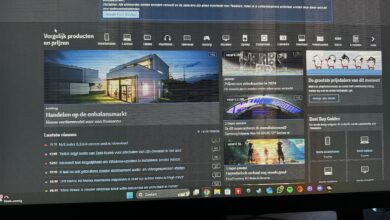
Exploring Versatile Industrial Applications: Key Examples
The Industrial Revolution paved the way for unprecedented advancements across various sectors, from manufacturing to healthcare. Today, we delve into the versatile industrial applications that continue to redefine modern industries. Join us as we explore vital examples that showcase the transformative power of technology in industrial settings.
The Rise of Automation and Robotics
Automation and robotics have revolutionized several industries, streamlining processes and enhancing productivity.
In manufacturing, robotic arms equipped with advanced sensors and programming perform intricate tasks precisely, improving efficiency and cost savings.
Moreover, autonomous robots are reshaping warehouse operations in logistics by optimizing inventory management and order fulfilment.
Sustainable Energy Solutions
Pursuing sustainable energy has led to innovative industrial applications in renewable power generation. From wind farms harnessing the kinetic energy of the wind to solar panels converting sunlight into electricity, these technologies play a pivotal role in reducing carbon emissions and mitigating environmental impact. Integrating energy storage solutions further enhances the reliability and stability of renewable energy sources.
Advanced Materials and Nanotechnology
Industrial applications of advanced materials and nanotechnology have unlocked new material science and engineering frontiers.
Nanomaterials exhibit extraordinary properties, enabling their use in diverse applications such as lightweight yet durable composites and ultra-responsive sensors.
These innovations drive progress in aerospace, electronics, and healthcare, propelling industries towards greater sustainability and performance.
Internet of Things (IoT) in Industrial Settings
The Internet of Things (IoT) has catalyzed a paradigm shift in industrial operations, fostering interconnected systems and intelligent automation. In smart factories, IoT-enabled devices communicate and collaborate, optimizing production processes and predictive maintenance.
IoT also plays a crucial role in asset tracking, inventory management, and real-time monitoring, empowering industries to manage resources and proactively enhance operational efficiency.
Electromagnet Control in Industrial Applications
Electromagnet control has emerged as a critical component in industrial automation and machinery operation, offering precise manipulation of tools and systems.
In industrial automation, electromagnets are used for a wide range of tasks, including positioning materials, controlling robotic arms, and operating valves and switches.
This technology enables highly accurate control over complex processes, significantly enhancing productivity and reducing the need for manual intervention.
Furthermore, adopting electromagnet control has facilitated advancements in safety mechanisms and energy efficiency, illustrating how electromagnetic technology propels industrial applications toward innovation and reliability.
Biotechnology and Precision Medicine
Biotechnology continues to redefine industrial applications, particularly in the realm of precision medicine and pharmaceuticals.
Genetic engineering, personalized therapies, and biopharmaceutical production advancements have propelled medical treatments toward unprecedented specificity and effectiveness. Furthermore, bioprocessing technologies enable the scalable production of bio-based products, driving sustainable solutions in healthcare and beyond.
Data Analytics and Predictive Maintenance
Data analytics and predictive maintenance have emerged as indispensable tools in industrial applications. They offer insights into equipment performance and operational optimization.
By analyzing sensor data and machine learning algorithms, industries can anticipate maintenance needs, prevent costly downtime, and ensure the longevity of critical assets. This data-driven approach enhances reliability, safety, and overall operational resilience.
Conclusion
The landscape of industrial applications continues to evolve, driven by relentless innovation and the convergence of technology and industry.
From the seamless integration of automation and robotics to the profound impact of biotechnology and data analytics, these examples underscore modern industrial practices’ dynamic and transformative nature.
As we look ahead, the potential for further advancements and cross-disciplinary collaborations presents an exciting vision for the industrial landscape of tomorrow.




